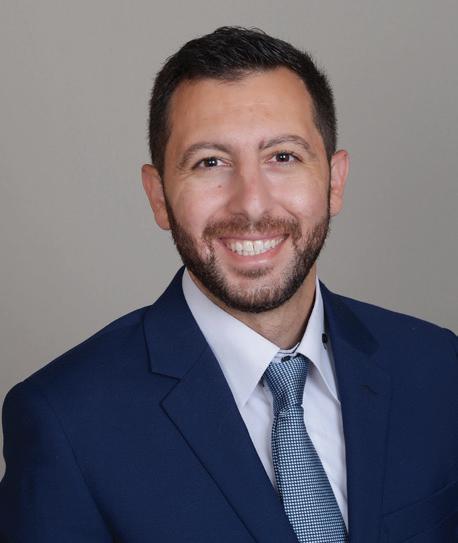
2 minute read
TRINH NGUYEN
Arizona
Trinhn05392@arizona.edu
Advertisement
Trinh Nguyen, is a first generation college student attending Arizona State University majoring in Biological Science with a Biomedical concentration. She was born and raised in Ho Chi Minh city, Vietnam, and moved to the states in 2013 in pursuit of a better education and livelihood for her family. Her background results in her interest in social determinants of health, mental health, and health disparities among immigrants and her career in the medical field. Currently, Trinh is working as a teaching assistant for organic chemistry labs, assisting students in the same major. She is also volunteering virtually as a crisis counselor at Crisis Text Line, a non-profit organization that provides mental health text service through confidential crisis intervention via SMS message. After undergraduate school, she plans to either pursue medical school or a master degree in healthcare administration. Her overall goal is to spread further mental health awareness among the immigrant population and lessening the healthcare disparities through culturally competent approaches tailored to optimize strategies in management and prevention of leading causes of death among rapidly growing ethnic populations.
⊲ PROJECT Prevalence of Insurance as a Social Determinant of Hispanics Cardiovascular Health in Maricopa County
According to the United States Census Bureau, 32.5% of Arizona population comes from a Hispanic origin with Maricopa County consist of 31% among their residents. In comparison with other counties, Maricopa is ranked the 6th highest with no health insurance (10.6%). In general, the Hispanic population have a higher death rate for diabetes, chronic liver disease and cirrhosis compared to their white counterpart. It is also found that 41.5% of Hispanics lacked health insurance, hence, the delay in their needed medical care due to cost concerns. With the leading causes of death among Arizona residents as disease of the heart, it is imperative to understand the social and physical determinants of health unique to this community. Social determinants such as lack of access to health services, presence of cultural and socioeconomic barriers such as language, unemployment, low income, and lack of insurance were identified for the Hispanics community. To address such problems, Mel and Enid Zuckerman College of Public Health and the US Mexico Border Health Commission launched mobile health units to improve health promotion and educational services for underserved and underinsured Hispanics/ Latino residents across Maricopa County. The unit provide free preventive health screening assessments for individuals that normally would not seek medical attentions, referrals to federally qualified health centers, health education and pharmacy benefit saving program resources. The unit also provides additional services such as HIV/Hep-C screening, skin cancer screening and flu vaccination through adulated healthcare partners when available. Through working with these mobile health units, data was obtained in order to see the prevalence of cardiovascular health in the uninsured. Hispanics population in order to demonstrate that the lack of affordable insurance is one of the major factors that affect the delay in their needed medical care and its preventative measures.





